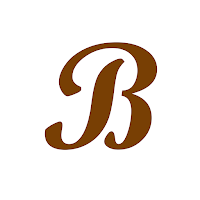John Donne (1572-1631)
John Donne (pron.: /ˈdʌn/ dun) (between 24 January and 19 June 1572[1] – 31 March 1631) was an English poet, satirist, lawyer and a cleric in the Church of England. He is considered the pre-eminent representative of the metaphysical poets. His works are noted for their strong, sensual style and include sonnets, love poetry, religious poems, Latin translations, epigrams, elegies, songs, satires and sermons. His poetry is noted for its vibrancy of language and inventiveness of metaphor, especially compared to that of his contemporaries. Donne's style is characterised by abrupt openings and various paradoxes, ironies and dislocations. These features, along with his frequent dramatic or everyday speech rhythms, his tense syntax and his tough eloquence, were both a reaction against the smoothness of conventional Elizabethan poetry and an adaptation into English of European baroque and mannerist techniques. His early career was marked by poetry that bore immense knowledge of British society and he met that knowledge with sharp criticism. Another important theme in Donne’s poetry is the idea of true religion, something that he spent much time considering and theorising about. He wrote secular poems as well as erotic and love poems. He is particularly famous for his mastery of metaphysical conceits.[3]
Despite his great education and poetic talents, Donne lived in poverty for several years, relying heavily on wealthy friends. He spent much of the money he inherited during and after his education on womanising, literature, pastimes, and travel. In 1601, Donne secretly married Anne More, with whom he had twelve children.[4] In 1615, he became an Anglican priest, although he did not want to take Anglican orders. He did so because King James I persistently ordered it. In 1621, he was appointed the Dean of St Paul's Cathedral in London. He also served as a member of parliament in 1601 and in 1614.
Quotes·Quotations by John Donne
Autumn
¶ No spring nor summer beauty hath such grace
As I have seen in one autumnal face.
Notes
[1]^ a b c d e f g h i j k l m n o p Colclough, ‘Donne, John (1572–1631)’, Oxford Dictionary of National Biography, Oxford University Press, September 2004; online edn, October 2007
oxforddnb.com. Retrieved 18 May 2010
[2]^
Donne, John. Columbia Encyclopedia, Sixth Edition
[3]^
Bookrags.com
[4]^
Luminarium.org
http://en.wikipedia.org/wiki/John_Donne



